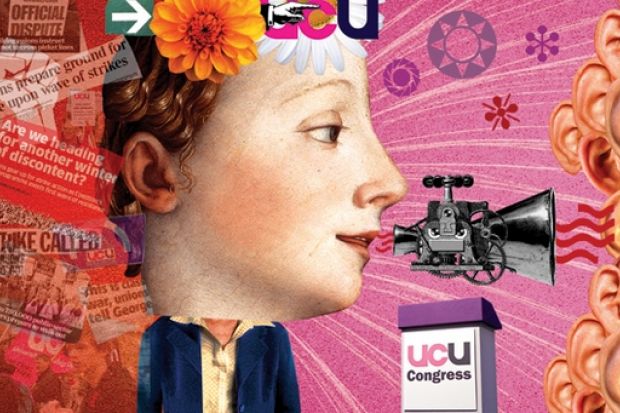Unions have been pivotal in every fight for social justice: decent pay, dignified retirement, a safe workplace and equality of opportunity are what we stand for and what we have always stood for.
That is as true in our universities and colleges as anywhere. Last year, the University and College Union took on 7,000 cases for individual members treated badly at work and our fine record of winning redress for them, including financial settlements, shows that we are a powerful and effective advocate for staff.
In the past year alone, the UCU has used its collective power to defend members' pension rights, protect jobs and oppose cuts to our sector and its staff.
Many historians consider the period from the 1950s to the 1970s to be the golden age of trade unionism and say that our best years are behind us. However, the need for trade unions is stronger now than it has been for a generation. We have a real opportunity, but can we take it?
The challenge is to be as relevant in today's world as we were 30, 40 or even 100 years ago. Because, despite our successes, past and present, union membership overall remains too low and support within the general population for our values is weak.
The polls show that union leaders like me are rated only just above bankers when it comes to public trust, and a recent YouGov study revealed that only one in 10 people thinks their MPs should pay attention to what trade unions have to say.
As much as it hurts to say, in the eyes of many of those we need to recruit, we are seen as old-fashioned, and sometimes self-serving and self-interested. We can say this is unfair and we can blame politicians and the press as much as we like, but the truth is that unions, including the UCU, need to be better at engaging with society as it is, not as we would like it to be or as it may have been 40 years ago.
So how do we go about achieving this? The recent UCU elections delivered a clear mandate for us to transform our relationship with members and to give them a greater say in how the union is run.
The changes I am proposing for the UCU are modest sounding but important and, if my in-box is anything to go by, extremely popular with members.
First, I propose to reduce the size of our National Executive Committee. Our NEC is currently bigger than that of Unison, which has 10 times as many members. What we need is to create a more effective, representative body comparable in size to those of other unions.
The money saved - more than £600,000 over my term of office - will be used to provide direct support for members and their representatives at the coalface.
Second, I propose to give members a vote on any employer offer that the majority of our negotiators believe to be final, before the union takes big decisions about whether to accept, reject and take action. This can be done quickly and cheaply using modern technology, and it puts our members in the driving seat.
Third, I propose that we elect our lay national negotiators not from the annual conference floor but from the members themselves using one-member one-vote.
My opponents in the recent election said these measures will weaken democracy in the UCU but I, and those who voted successfully for change, believe they will strengthen it. Consulting members before we take action is what gives us legitimacy in our struggles. Letting members decide who represents them at the negotiating table makes us more accountable, not less. Investing in our local activists, rather than in internal bureaucracy, will deliver a union that is closer to its members.
Reform of the UCU is not about turning us towards the political Left or Right. It is about turning us towards our members. That means using our resources for the things members want us to fight on. It means choosing our battles rather than fighting "total war", as some have argued. And it means using our brilliant staff to concentrate on supporting members, running campaigns and building a credible alternative to the cuts, rather than writing paper after paper for internal committees.
People will join unions if they see us standing up for them, they will stay with us if they see us listening to them and they will become active if they think their voice counts.
If you are a UCU member, please vote in the referendum on change; it is your union. If you are not a member, please consider joining us to help build a union to face the future head on.
Register to continue
Why register?
- Registration is free and only takes a moment
- Once registered, you can read 3 articles a month
- Sign up for our newsletter
Subscribe
Or subscribe for unlimited access to:
- Unlimited access to news, views, insights & reviews
- Digital editions
- Digital access to THE’s university and college rankings analysis
Already registered or a current subscriber? Login
